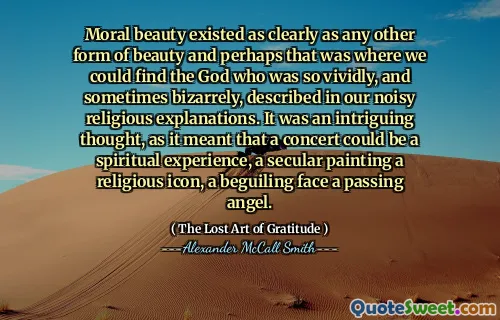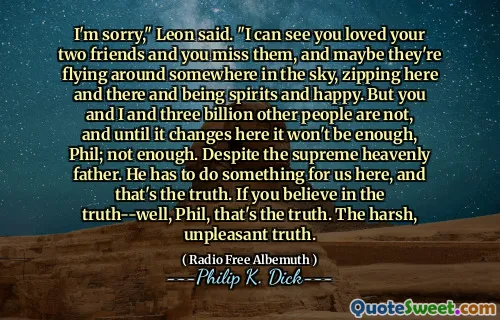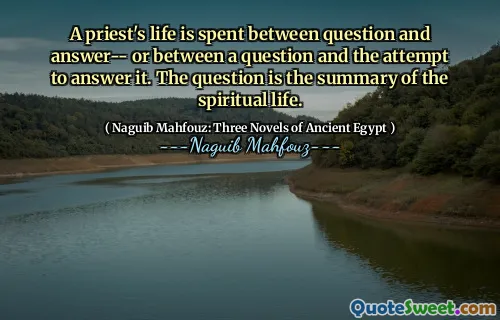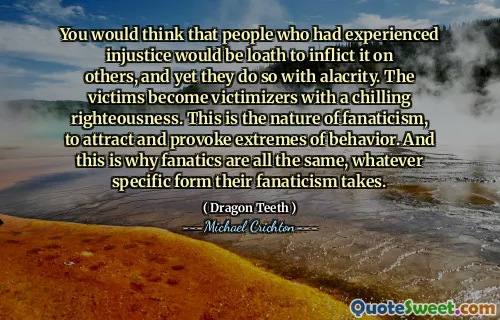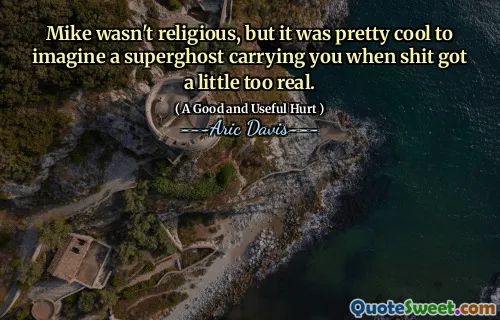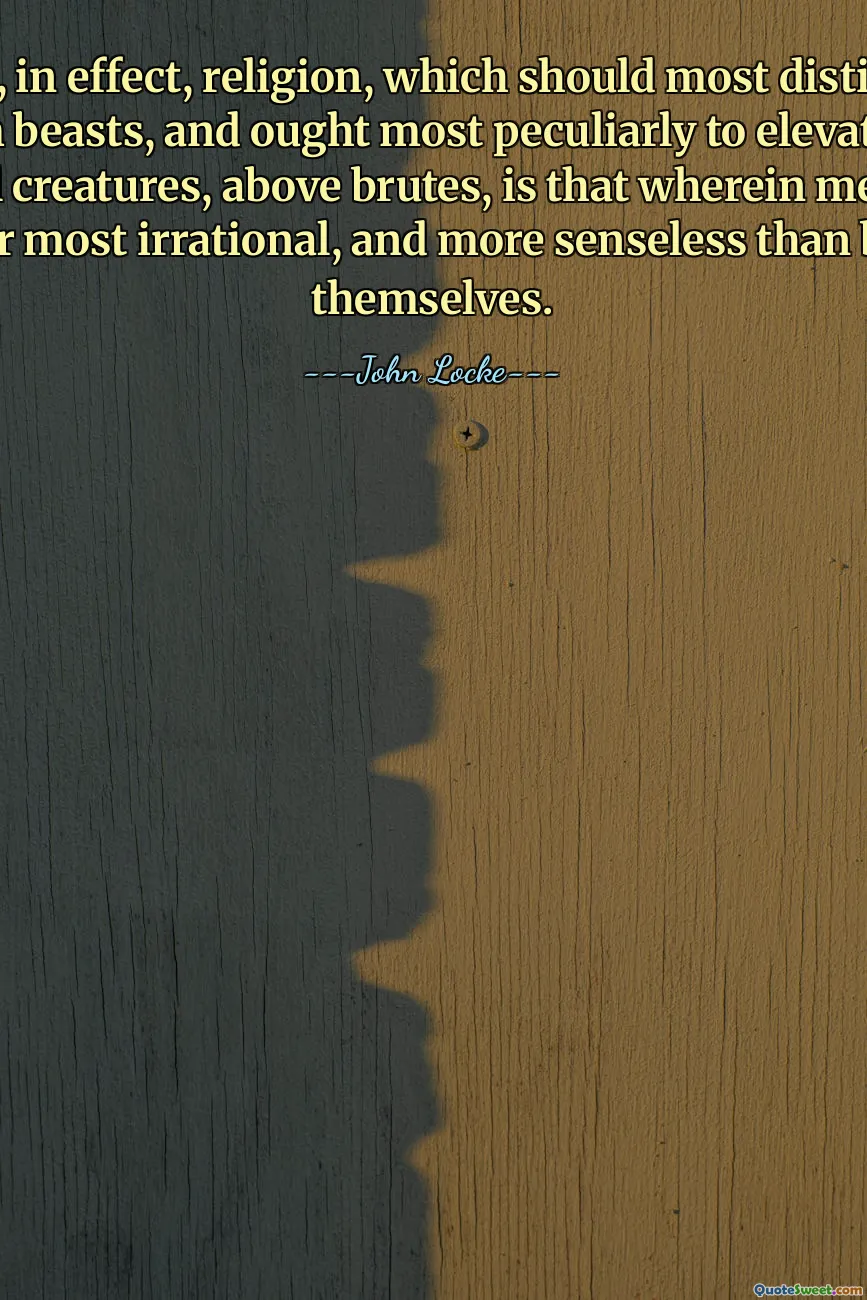
So that, in effect, religion, which should most distinguish us from beasts, and ought most peculiarly to elevate us, as rational creatures, above brutes, is that wherein men often appear most irrational, and more senseless than beasts themselves.
This quote highlights a profound paradox regarding the role of religion in human life. Ideally, religion is meant to serve as a moral compass that guides individuals towards higher virtues, fostering compassion, understanding, and a sense of moral duty that sets humans apart from other animals. As rational beings, humans possess the capacity for reason, moral judgment, and philosophical reflection, and religion should ideally amplify these traits, leading to a more enlightened and morally upright society.
However, the quote critically reflects on the questionable instances where religion seems to contradict its own lofty aims. Instead of elevating human dignity and promoting rational thinking, religion can, at times, become a source of irrationality and divisiveness. Historical and contemporary examples abound where religious prescriptions or dogmas have led to conflict, intolerance, and irrational behavior that undermine the very qualities religion is supposed to foster.
This paradox invites a deeper contemplation of how religion is practiced and understood. When misused or misunderstood, it can become a tool for justifying violence, prejudice, or irrational fears, rather than a force for moral clarity and higher reasoning. The quote underscores the importance of critically examining how religious beliefs influence human behavior, urging us to ensure that religion remains a positive force that elevates us above our baser instincts, rather than reduces us to a more senseless state.
Ultimately, the message challenges individuals and societies to reflect on the true purpose of religion and insists that it should serve as a means to cultivate reason, compassion, and moral integrity — qualities that truly distinguish humans from beasts.






